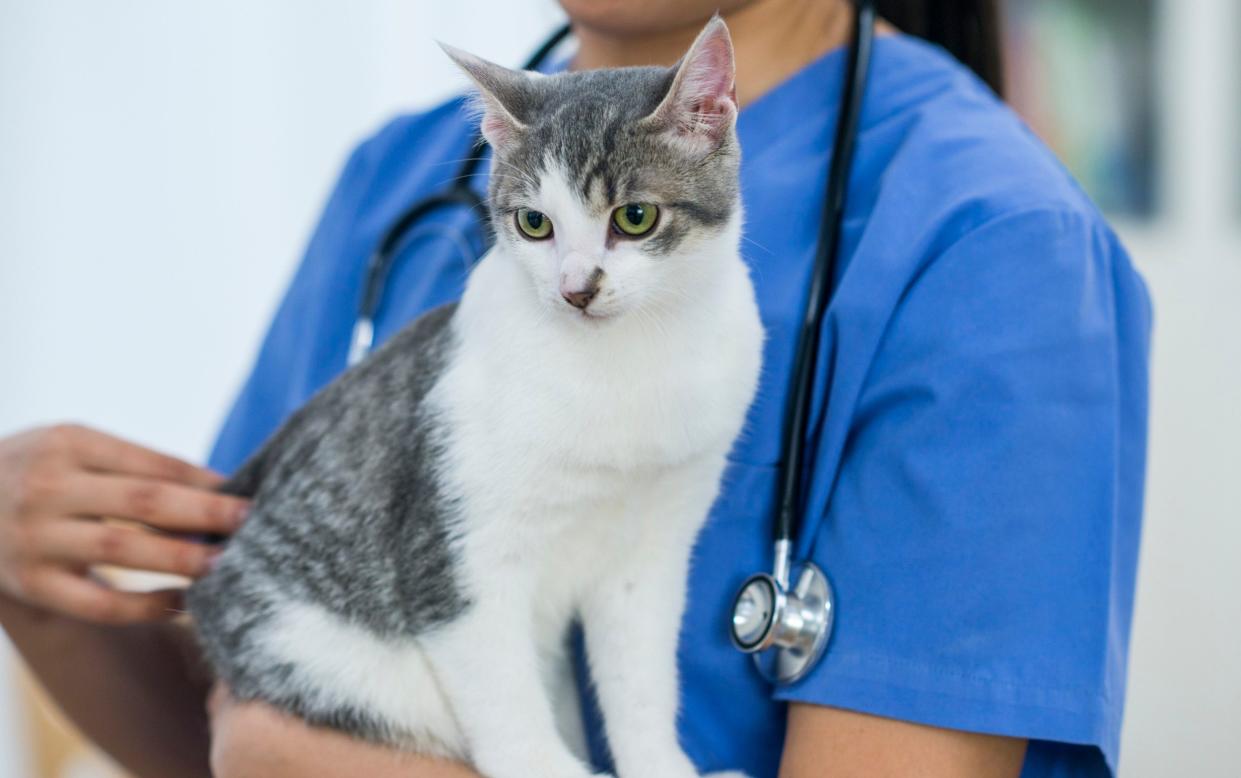Vet nurse decapitated dead cats and kept heads in her freezer

A veterinary nurse who decapitated the corpses of dead cats and took their skulls home has escaped with a warning.
The locum, granted anonymity at a disciplinary hearing over fears of a public backlash, used a scalpel to chop off two feline heads kept them in her freezer for three weeks.
The woman, who had qualified as a nurse two years previously, wanted the skulls so they could be put on display, a committee was told. When confronted, she said she meant no “disrespect” to the animals and had been “appreciating their bodies”.
However, she admitted to serious misconduct before the Royal College of Veterinary Surgeons committee .
The panel heard that during a night shift on Feb 16 last year, the locum nurse – identified as “B” – “removed the heads from the dead bodies of cats, other than for legitimate veterinary purposes, and that she then took the heads home”.
One of the tasks was to sort out the “numerous” animal bodies that were stored in a walk-in refrigerator ready for collection the following morning before cremation.
As they were being sorted, the nurse “asked if she could remove the heads from stray dead cats”. She claimed she had been “given permission” by a permanent member of staff to do so.
The panel heard she then took two bodies, went into the prep room to use a scalpel to remove their heads and then took them home in a cadaver bag, which she placed in her freezer.
Claimed to have been given permission
In March last year, the nurse was interviewed by the district manager. During the conversation, she said she had asked whether she could “take a couple of skulls from the trays” because she had a friend who “cleaned up dead strays” and displayed skulls at home. She again said she had been given permission.
Asked to clarify her reasoning for taking the heads, she said she and her friend had an “interest” in them, and also “owned some mealworms which ate away at the cat’s flesh, leaving the skull”.
When asked whether stray animals should be treated with “the same dignity” as those that were previously pets, she said “strays were not anyone’s property”.
Concluding the interview, the nurse said she did not think she had done anything “disrespectful” and it had been a way of “appreciating the body”. She did, however, accept that others “might have a different view”.
In her submissions to the panel, the nurse said she did not agree there were any negative animal welfare consequences because the two cats involved were already dead.
She said: “I would like to make it clear that I have the utmost respect for animals, and actually consider cats to be my favourite domestic animal. I own three cats myself. I consider my own cats to be family members and am incredibly attached to them. I do my best every day to make sure they are happy and healthy.
“For me, the keeping of ashes and bones is meant to be an appreciation of the animal or person, it was in no way meant to be disrespectful.
“Professionally, I am hugely interested in anatomy and learn best visually, so have always been interested in and keen to be involved with veterinary post-mortems. Bones and skulls are especially interesting to me.
“I have heard many stories of other professionals unknown to me who do similar things in various ways, which include taking whole skeletons from strays, bringing in roadkill and dealing with them in a veterinary environment, taking strays and/or wildlife to be used for taxidermy, also of cat cadavers used in approved educational ways to be dissected.
“Alongside this, I have seen adverts for live human and animal dissection that is used for entertainment on TV, and am aware of celebrated artworks involving body parts of animals and cadavers.”
‘Huge misjudgment’
However, she admitted she now felt “guilt, shame and embarrassment” for what she did and was “deeply apologetic” for her “huge misjudgment”.
The committee found her guilty of serious professional misconduct. Ruling that an official reprimand was a sufficient punishment, it said her behaviour had been “inappropriate” rather than “scandalous” and she was unlikely to repeat it.
Kathryn Peaty, who chairs the committee, said: “[She] abused her professional position. She had an obligation to treat the cadavers with respect.”


